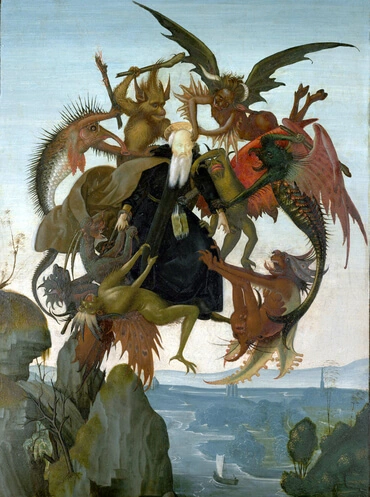3796. 'And so it was, when Jacob saw Rachel the daughter of Laban his mother's brother' means an acknowledgement of the affection for that truth as to its origin. This is clear from the meaning of 'seeing' here as acknowledging, as is evident from the train of thought, and from the representation of 'Rachel' as the affection for interior truth, dealt with above in 3793. The expression 'the daughter of Laban his mother's brother' embodies the origin of that affection; that is to say, it came from a parallel good which had been joined in a brotherly relationship to rational truth represented by 'Rebekah, Jacob's mother'.
[2] As regards affections for truth and good, genuine affections for truth and good which are perceived by a person all have a Divine origin since they come from the Lord. But as they come down they branch off into various and different streams where they form new origins for themselves. For as they flow into affections which are not genuine but spurious, and into affections for evil and falsity present with a person, so they become varied. Affections which often have a similar outward appearance to genuine ones present themselves, but these are nevertheless not genuine inwardly. The only way to establish their true identity is to discover the end they have in view. If that end is selfish or worldly those affections are not genuine. But if the end is the good of the neighbour, the good of the community, the good of the country, and more still if it is the good of the Church and the good of the Lord's kingdom, they are genuine, for in that case the Lord is their end, since the Lord is within those varieties of good.
[3] But it is the mark of someone wise to be aware of which ends are present in himself. Sometimes it does seem as though his ends are selfish when in fact they are not, for the human being is such that in everything he considers how it affects himself. This he does regularly and habitually. But if anyone wishes to know the ends he himself has in view he has merely to take note of his feeling of delight - whether it is on account of his receiving praise and glory, or whether it is on account of his performing some unselfish service. If it is the latter delight which he feels, genuine affection is present in him. He ought also to take note of the varying states he passes through, for those states cause his feelings to vary considerably. A person is able to find these things out in himself, but not in others, for the ends in view to anyone's affection are known to the Lord alone. This is why the Lord said,
Do not judge, lest you are judged; do not condemn, lest you are condemned. Luke 6:37.
For a thousand people may apparently share the same affection for truth and goodness, and yet the affection in each of them may have a different origin, that is, each may have a different end in view.
[4] The reason the end makes the affection what it is - that is to say, genuine, spurious, or false - is that the end is the person's actual life. Indeed a person has as his end in view that which constitutes his life, or what amounts to the same, his love. When the good of the neighbour, the common good, the good of the Church and of the Lord's kingdom is the end in view, a person's soul is in the Lord's kingdom and so abides with the Lord. For the Lord's kingdom is nothing else than a kingdom of ends and purposes directed towards the good of the human race, 3645. Angels themselves present with a person are nowhere else than within his ends in view. To the extent that someone's end in view is such as that which exists in the Lord's kingdom, angels take delight in him and join themselves to him as a brother. But to the extent a person's end is himself, angels depart and evil spirits from hell draw near, for in hell no other end in view reigns. From these considerations one may see how important it is to find out and to know where one's affections originate; these can be known from nothing else than one's end in view.









